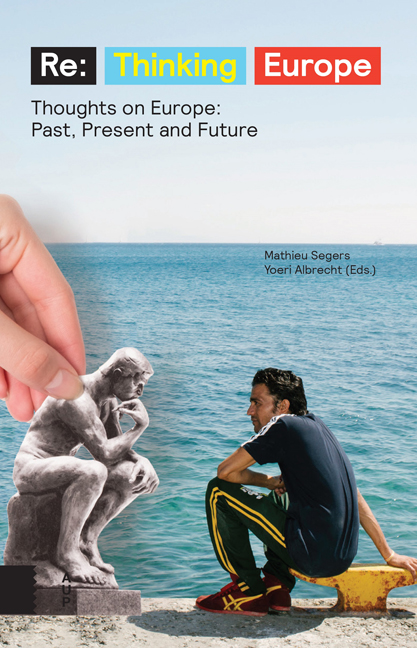The Cowardly Lion in Quest of Peace: The EU and Its Fear of Power
Published online by Cambridge University Press: 07 January 2021
Summary
In a novel written at the turn of the 20th century entitled The Wonderful Wizard of Oz, L. Frank Baum introduced a thoughtprovoking character: the Cowardly Lion, whose despondent image was immortalised in the film of 1939. The feline joins the quest of the heroine for a mysterious wizard, in the hope of retrieving his lost courage. Could it be that the European Union fits this archetype of the reluctant hero, who is required to face the present by first coming to grips with his own past?
This metaphor comes to mind for the European Union, because in addition to its explicit value of peace, it also has an unexpressed anti-value: a shyness about anything that resembles either power or brilliance, which borders on self-denial. This can be observed in many of its exterior signs: from the carefully cultivated absence of charismatic leaders (apparently, some unwritten rule requires them to look like sun-deprived bookworms), to the punctilious equal weight that it gives to its twenty-four languages (even though it is public knowledge that an Anglo-European pidgin is used for most conversations and internal memos). Not to mention the European anthem, a splendid composition by Beethoven played against type, turned into a pompous lullaby that would make a football player cringe; and finally the Euro banknotes, uncannily lifeless because they are forbidden to feature a human being. Another characteristic of the current European Union is its obsession with its own sickness and the imminence of its death – especially today with the accumulated onslaught of the sovereign debts, Brexit, the refugee crisis, and terrorist attacks.
Why Peace?
But first of all, why peace? In fact, Title I of the Treaty on European Union (Art. 3) gives it an even higher status than a value, since it is stated as the aim of this institution (“The Union's aim is to promote peace, its values and the well-being of its peoples.”) There is good reason, since the European construction was hardly born on a bed of roses. In May 1945, the criminal Nazi Reich had been crushed, and Germany militarily occupied by the Allies of the Second World War.
- Type
- Chapter
- Information
- ReThinking Europe Thoughts on Europe: Past, Present and Future, pp. 87 - 98Publisher: Amsterdam University PressPrint publication year: 2016

